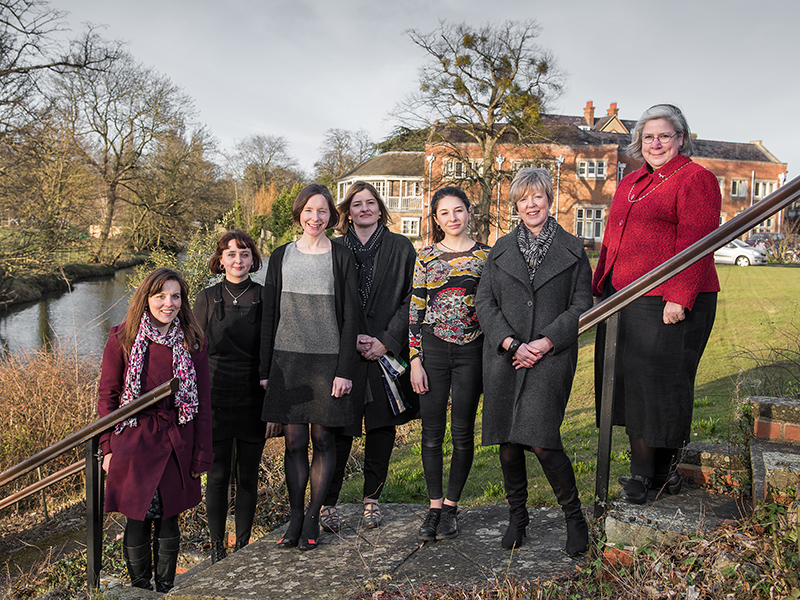Dr Senia Paseta helping to promote gender equality in academia

With one of the largest groups of academics working on women’s and gender issues, the University of Oxford is one of the most vibrant hubs in the field. Now, a group of humanities academics is taking a step further and challenging sexism in academia with an interdisciplinary research programme.
Supported by a private donor, the Women in the Humanities initiative seeks to bring together women academics at all stages of their career to discuss their work on gender, and support female researchers working in this field via grants.
Through discussion groups, seminars and lectures, the programme aims to confront the gender gap in the world of professional academia and research. ‘We hope to act as a hub for women at all career stages who share our view that sexism remains a powerful force within universities,’ says one of the programme’s directors, St Hugh’s Fellow, Dr Senia Paseta. ‘Collectively, we can think about how to challenge this.’
The mission of this group, based at TORCH (The Oxford Research Centre in the Humanities), has resonated with women around the world. ‘We have been heartened and overwhelmed by the response from women in the humanities at Oxford, and beyond. We have also heard from women in universities across the UK, and from as far afield as Australia and Brazil,’ says Dr Paseta.
Supporting early-career academics
One of the core goals of the programme is to back younger scholars through grants. One of the researchers receiving support is Dr Emily Coit, Junior Research Fellow at Worcester College. ‘I felt a sense of possibility when I was awarded this grant. For an early-career researcher, it’s hugely important to have your work affirmed in this way,’ says Dr Coit.
Her research focuses on American 19th century writer Edith Wharton, and her critique of women’s scholarly learning. It is part of a broader project on the different iterations of feminism across history, which is particularly timely. ‘There has been a lot of debate recently about what being a feminist means,’ says Dr Coit. ‘I hope to draw attention to the fact that feminism has never been just one narrow set of views. It’s always been a conversation; a set of different, and sometimes competing, views.’
A group of students on the MSt in Women’s Studies have also received funding to organise a conference celebrating two decades of the teaching of this Master’s at Oxford. ‘Since arriving in Oxford, we had hoped to hold an interdisciplinary and intersectional feminist conference,’ say Charlotte De Val and Eleri Watson, two of the students involved. ‘This grant has allowed us to be more ambitious with it, and bring in some of the best speakers in our field.’
Increasing awareness of the obstacles women face
Since the start of this academic year, the programme has been extremely successful, attracting a diverse audience, media coverage, and some of the top experts in the field to speak at Oxford. ‘This is a recognition that what we are doing is important and timely,’ says Dr Paseta. ‘We hope this programme increases the awareness of the obstacles female researchers face in seeking research funding, employment and promotion,’ she says.
This is only the first step in a long journey towards equality. ‘With these funds from a private donor, we have been able to make a huge impact quickly,’ she says. ‘With further backing, our initiative could make a real mark in university life and enhance Oxford’s reputation for genuine commitment to equality, inclusion and academic excellence.’
Article credit: Oxford Thinking: The Campaign for the University of Oxford
Image credit: John Cairns photography
